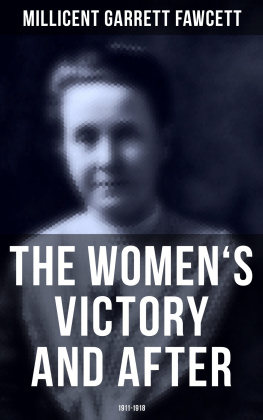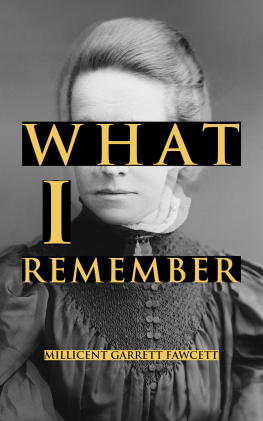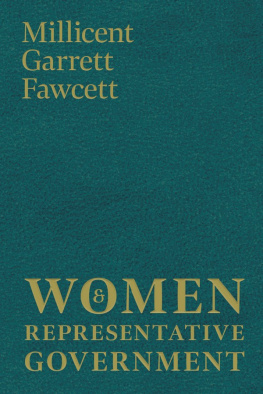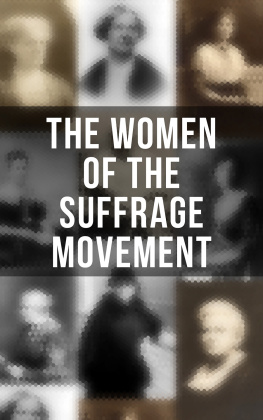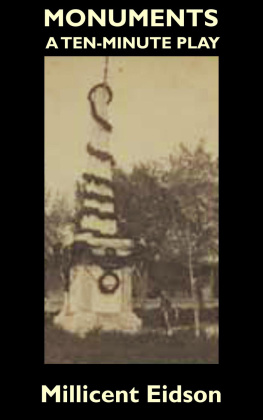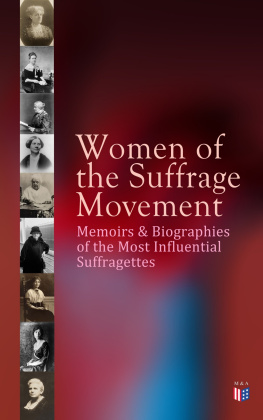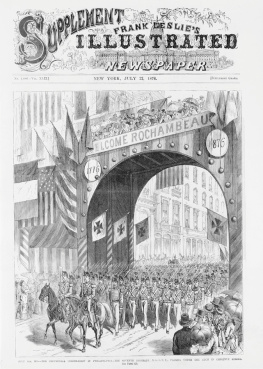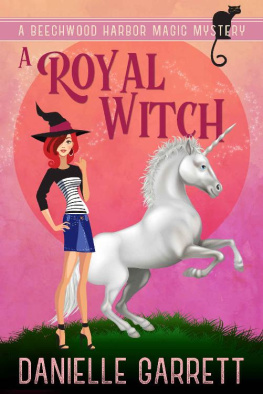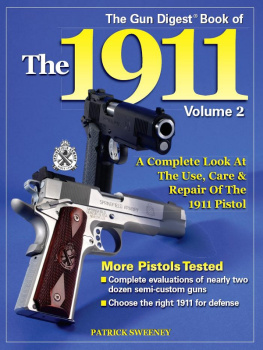THE WOMEN'S VICTORY
AND AFTER
"When there is a fervent aspiration after better things, springing from a strong feeling of human brotherhood and a firm belief in the goodness and righteousness of God, such aspiration carries with it an invincible confidence that somehow, somewhere, somewhen, it must receive its complete fulfilment; for it is prompted by the Spirit which fills and orders the Universe throughout its whole development."
J. B. Mayor : Virgil's Messianic Eclogue.
"AT LAST!"
(Reproduced by special permission of the Proprietors of Punch.)
Punch, January 23, 1918.]
[Frontispiece.
The Women's Victoryand After:
Personal Reminiscences, 1911-1918
By Millicent Garrett Fawcett ,
LL.D., once President, N.U.W.S.S.
London: Sidgwick & Jackson, Ltd.
First published in 1920
DEDICATORY PREFACE
TO THOSE WHO MADE THE DREAM COME TRUE
I wish to dedicate this little book to the thousands of faithful friends and gallant comrades whose brave unwearied work, steadfastly maintained through many years, made Women's Suffrage in Great Britain no longer a dream but a reality. Many of them have passed away, but their work, its results, and our gratitude remain. Whether in the flesh or out of the flesh, I have been accustomed to think of them as the Goodly Fellowship of the Prophets; for they foresaw what was coming, proclaimed it, and devoted themselves in making it come in the right way. All my gratitude goes out to them, especially to
E.G.A. : C.C.O. : E.F.R. : I.O.F. :
A.G. : R.G. : E.P. : E.A. :
R.S. : E.G. : H.A. :
S.G. : I.H.W. :
E.I.
Through the kindness of the Proprietors of Punch, I am allowed to use as illustrations some of their excellent pictures demonstrating the growth of the suffrage movement. For this permission, and also for their valued support and sympathy, continued over many years, my heartfelt thanks are hereby tendered.
MILLICENT GARRETT FAWCETT.
London ,
January, 1920.
CHAPTER I
THE TWO DEPUTATIONS
"I have a passionate love for common justice and common sense." Sydney Smith.
In 1911 I wrote a little book called "Women's Suffrage: a Short History of a Great Movement." My intention in the following pages is to bring my story up to February 6th, 1918, when the Royal Assent was given to the Representation of the People Act, which for the first time placed women on the register of parliamentary voters.
In 1911 I ended my book on a note of confidence. I felt quite sure that we were going to win soon, but I did not the least foresee the wonderful series of events which actually led to so complete and great a victory.
Not that all the signs were favourable in 1911very far from it. There were many ominous clouds on the horizon, and one of the chief of them was the known hostility of Mr. Asquith, then Prime Minister, and at the zenith of his power. His acuteness and dexterity in offence and defence were unrivalled, and most suffragists believed that he intended to wreck our cause on the rocks of Adult Suffrage, for which there had been no demand in the country.
In 1908, almost immediately after he became Prime Minister, Mr. Asquith had announced his intention before the expiration of that Parliament to bring in an Electoral Reform Bill; this Bill, he had declared, would not include women; but he pledged his Government not officially to oppose a woman suffrage amendment "if drafted on democratic lines." The Parliament elected in 1906 with an overwhelming Liberal majority was dissolved in 1909 without the fulfilment of this intention. There were two General Elections in 1910 without the introduction of a Reform Bill. But the suffrage societies continued without intermission to keep up a tremendously active agitation for the enfranchisement of women. The various methods employed have been sufficiently described in my earlier book. It is enough here to state that a large majority of Members of the House of Commons, belonging to all parties, were pledged to support women's suffrage; that various private Members' Bills for extending the franchise to women had passed their second reading in the Commons every year since Mr. Asquith became Prime Minister; that the strength of our support in the rank and file of the Liberaland also in the ConservativeParty was constantly growing, and that the Labour Party had definitely placed the enfranchisement of women upon its official programme. In January, 1913, immediately after what will be hereafter described as the Franchise Bill fiasco of Mr. Asquith's Government, the Labour Party, at its annual conference, passed by an enormous majority a resolution reaffirming its support of women's suffrage, and calling "upon the party in Parliament to oppose any Franchise Bill in which women are not included." This was the most signal service to our cause which had then been rendered by any political party.
It was followed at the next meeting of the Trades Union Congress by the adoption of the following resolution:
"That this meeting expresses its deep dissatisfaction with the Government's treatment of the franchise question ... and protests against the Prime Minister's failure to redeem his repeated pledges to women, and calls upon the Parliamentary Committee to press for the immediate enactment of a Government Reform Bill, which must include the enfranchisement of women."
Over forty trade unions, including the most important, such as the N.U.R. and the A.S.E., adopted resolutions supporting the enfranchisement of women.
The formation of the Conciliation Committee in the House of Commons in 1910 has been sufficiently described in my earlier book (p. 73). Its object was to unite all suffragists in the House, and secure their support for a suffrage Bill which was believed to represent their greatest common measure. They decided that this would be found in a Bill to enfranchise women householdersthose women, in fact, who had for about forty years been admitted to the local franchises. The Bill was called the Conciliation Bill because it had reconciled differences existing between various types of suffragists inside the House of Commons.
In July, 1910, two days of the Government's time had been given for a full-dress debate upon the Conciliation Bill. Hostile speeches from Mr. Asquith and Mr. Austen Chamberlain, on the ground of their complete opposition to all kinds of women's suffrage, were followed by equally vehement and hostile speeches from Mr. Lloyd George and Mr. Winston Churchill, on the ground that this particular Bill did not go far enough, and was so drafted as not to admit of amendment. In anticipation of, and during, the Parliamentary debate, The Times came out with a hostile article every day for nearly a fortnight, and its columns contained numerous letters prophesying all kinds of horrors and disasters which were to be expected if women were allowed to vote; many were of the type satirized in "Rejected Addresses," "What fills the Butchers' Shops with Large Blue Flies?" Notwithstanding all this, the division on the Second Reading resulted in a majority of 110 for the Bill, a far larger figure than the Government had been able to command for any of its party measures.

